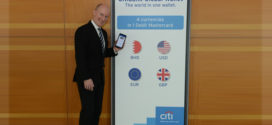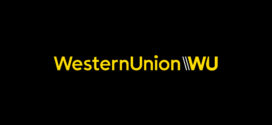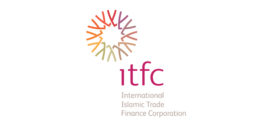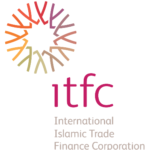 Jeddah, Saudi Arabia – The International Islamic Trade Finance Corporation (ITFC), and the Islamic Corporation for the Development of the Private Sector, members of the Islamic Development Bank (IDB) Group signed a Cooperation Framework Agreement on Monday 15 August 2016, in the Headquarters in Jeddah.
Jeddah, Saudi Arabia – The International Islamic Trade Finance Corporation (ITFC), and the Islamic Corporation for the Development of the Private Sector, members of the Islamic Development Bank (IDB) Group signed a Cooperation Framework Agreement on Monday 15 August 2016, in the Headquarters in Jeddah.
The Agreement aims at enabling Nouadhibou Free Zone Authority (NFZA) to adopt international practices in organization design, human resources management, financial planning and management through a twining program, the leading model of Aqaba Special Economic Zone Authority (ASEZA). Eng. Hani Salem Sonbol, CEO 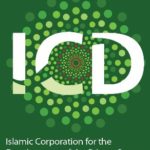 ITFC and Mr. Khalid Mohammed Al-Aboodi, CEO ICD signed the Agreement, with the presence of representatives from both entities.
ITFC and Mr. Khalid Mohammed Al-Aboodi, CEO ICD signed the Agreement, with the presence of representatives from both entities.
Launched in June 2013, the Nouadhibou Free Zone (NFZ) was in line with the national vision of the government of Mauritania to develop Nouadhibou Bay as the leading economic pole for the national economy, a trade logistical hub and a commercial gateway for the export of fishery and mineral products. Mauritania,
through NFZ, has a great potential to reach multi-sectorial development, which can have the positive needed impact on exports and employment. The success of the Nouadhibou Free zone can drive the country to export diversification, sustainable economic growth and to increase employment.
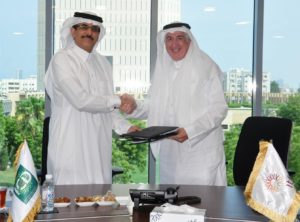
The purpose of this Agreement is to provide the cooperation framework between ITFC and ICD, particularly for the implementation of the above mentioned Project, which has been approved by the Fourth Meeting of the Aid for Trade Initiative for the Arab States (AfTIAS) Board held in Cairo on 1 December 2015. AfTIAS focuses on the capacity building of trade related institutions, which will contribute to drive the development and management of NFZ as the investment and trade hub for Mauritania.
Commenting on the signing, Eng. Hani Salem Sonbol said, “This agreement is a milestone in the AfTIAS Program that reflects its aim to achieve inclusive economic growth with increased employment opportunities and greater competitiveness through trade policy reforms in Arab countries as an integral part of the regional trade and economic integration agenda.”
From his side, Mr. Khalid Mohammed Al-Aboodi, elaborated about the aspirations for the future of this agreement by saying “The Nouadhibou Free Zone is a good platform to attract both national and foreign investments to the country within more conducive business environment. Nouadhibou Free Zone with its strong linkages to the national economy in key sectors such as fisheries is also a major gateway to integrate the local economy of Mauritania to the global economy by means of trade and foster closer inter-arab country cooperation. Therefore we see high complimentary between the roles of ICD and ITFC as the chairman of AFTIAS under this agreement to support the development of the zone authority in continuation of former efforts by IDB Group that started since 2011″.
The project will trigger future interventions related to developing trade infrastructure in the zone under a capable and competent administration and planning body (NFZA). In addition, it will contribute to promoting the role of ASEZA internationally as a center of excellence and role model for special economic zones in Arab countries.
—- The End—-
About ITFC
The International Islamic Trade Finance Corporation (ITFC) is an autonomous entity within the Islamic Development Bank Group. It was created with the purpose of advancing trade, which would ultimately contribute to the overarching goal of improving socioeconomic condition of the people across the Islamic world. ITFC has since consolidated all the trade finance businesses that used to be handled by various windows within IDB Group. It commenced operations in Muharram 1429H (January 2008G). The consolidation of IDB Group’s trade finance activities under a single umbrella enhanced the Corporation’s efficiency in service delivery by responding swiftly to customer needs in a market-driven business environment.
As a leader in Sharia-compliant trade finance, ITFC deploys its expertise and funds to businesses and governments in its Member Countries. Its primary focus is to encourage more intra-trade among OIC Member Countries. As a member of IDB Group, ITFC has unique access to Member Countries’ governments and it works as a facilitator to mobilize private and public resources towards achieving its objectives of fostering economic development through trade. The Corporation helps entities in Member Countries gain better access to trade finance and provides them with the necessary trade-related capacity building tools in order to help them compete successfully in the global market. www.itfc-idb.org
About the Islamic Corporation for the Development of the Private Sector (ICD)
ICD is a multilateral organization and a member of the Islamic Development Bank (IDB) Group. The mandate of ICD is to support economic development and promote the development of the private sector in its member countries through providing financing facilities and/or investments which are in accordance with the principles of Sharia’a. ICD also provides advice to governments and private organizations to encourage the establishment, expansion and modernization of private enterprises. For more information, visit www.icd-ps.org
About AfTIAS
The Aid for Trade Initiative for the Arab States (AfTIAS) programme was launched in 2013 by ITFC, in collaboration with the United Nations Development Programme (UNDP), the International Labour Office (ILO), the International Trade Centre (ITC), the United Nations Conference on Trade and Development (UNCTAD) and the United Nations Industrial Development Organization (UNIDO). Seven donors funded AfTIAS Programme: Kingdom of Saudi Arabia, State of Kuwait, Kingdom of Sweden, Arab Republic of Egypt, UNDP, IDB and ITFC.
As part of the global Aid for Trade initiatives, AfTIAS Programme aims to foster Arab trade through enhancing enterprise competitiveness and facilitating trade. More specifically, AfTIAS objectives are: Enhance regional competitiveness through trade reforms; strengthen trade supply side and value chain integration; and strengthen regional and sub-regional organizations’ capacity to foster trade integration.
 Cash And Trade Magazine For Cash and Trade professionals in the Middle East
Cash And Trade Magazine For Cash and Trade professionals in the Middle East

